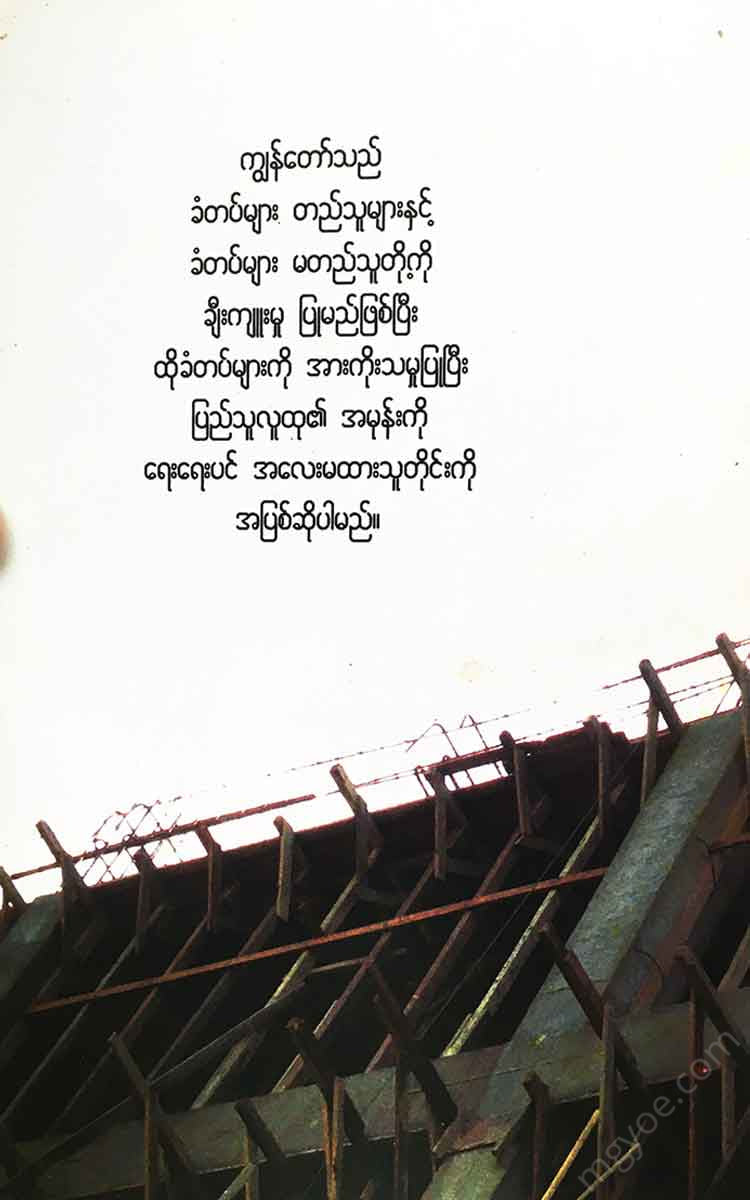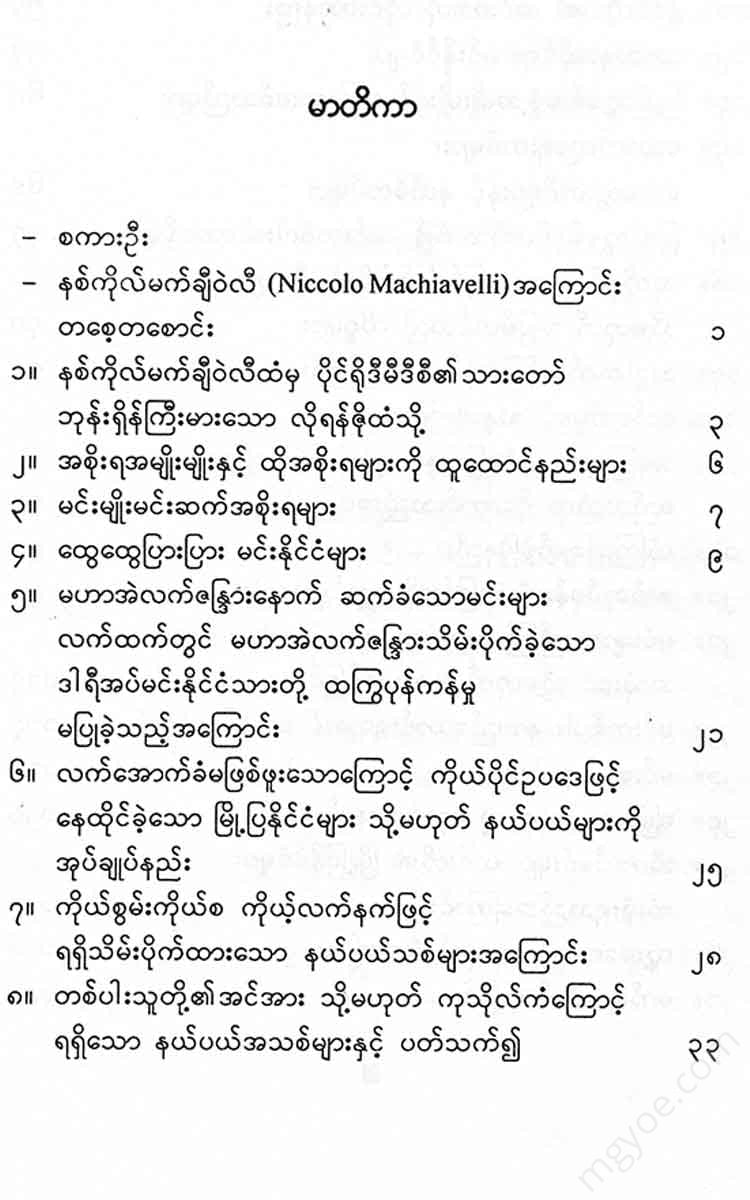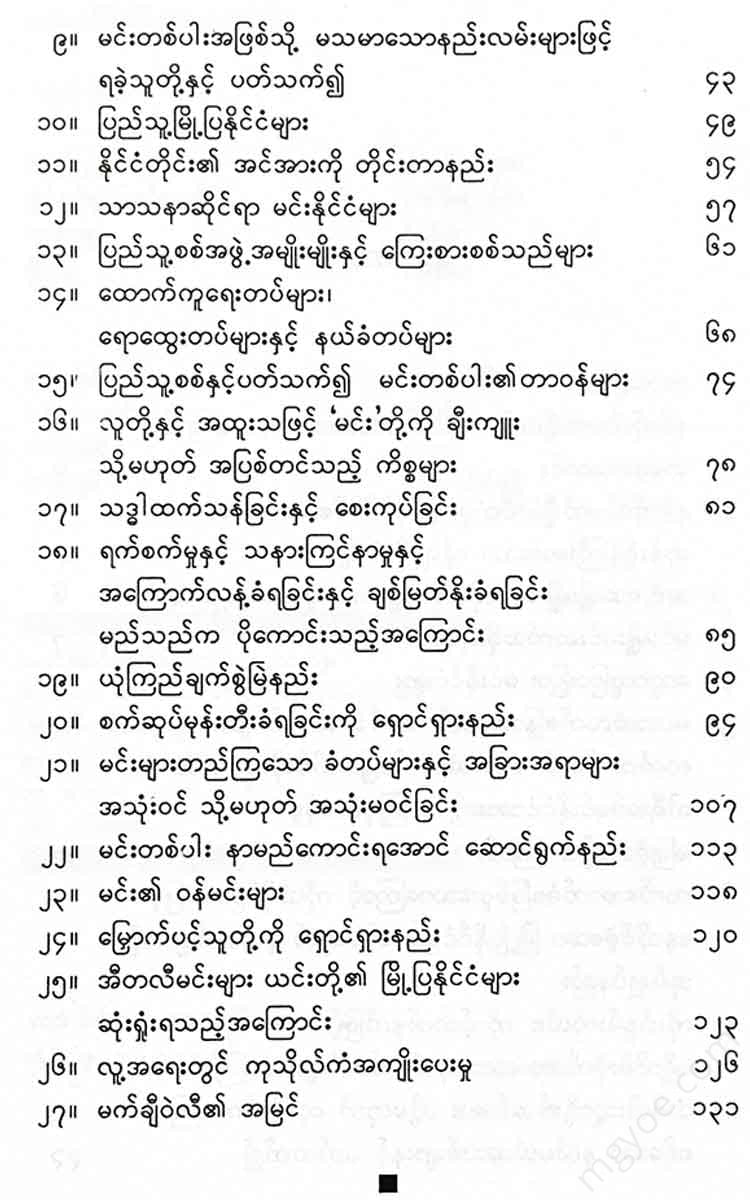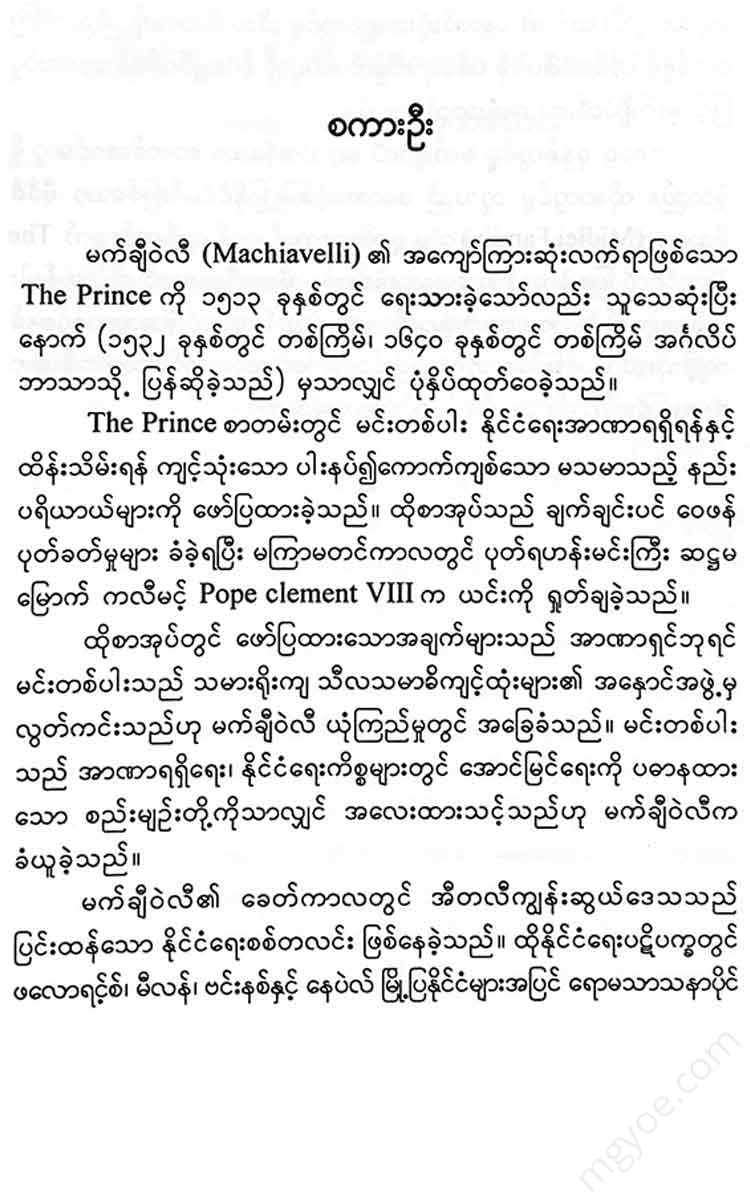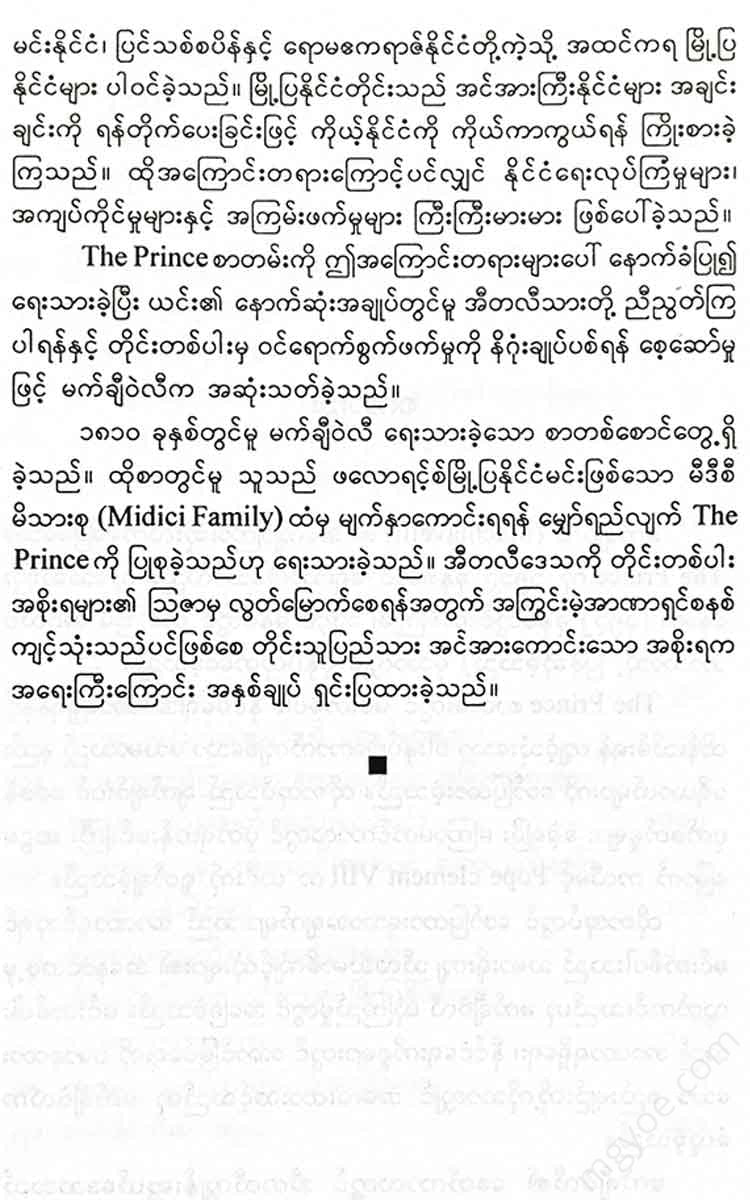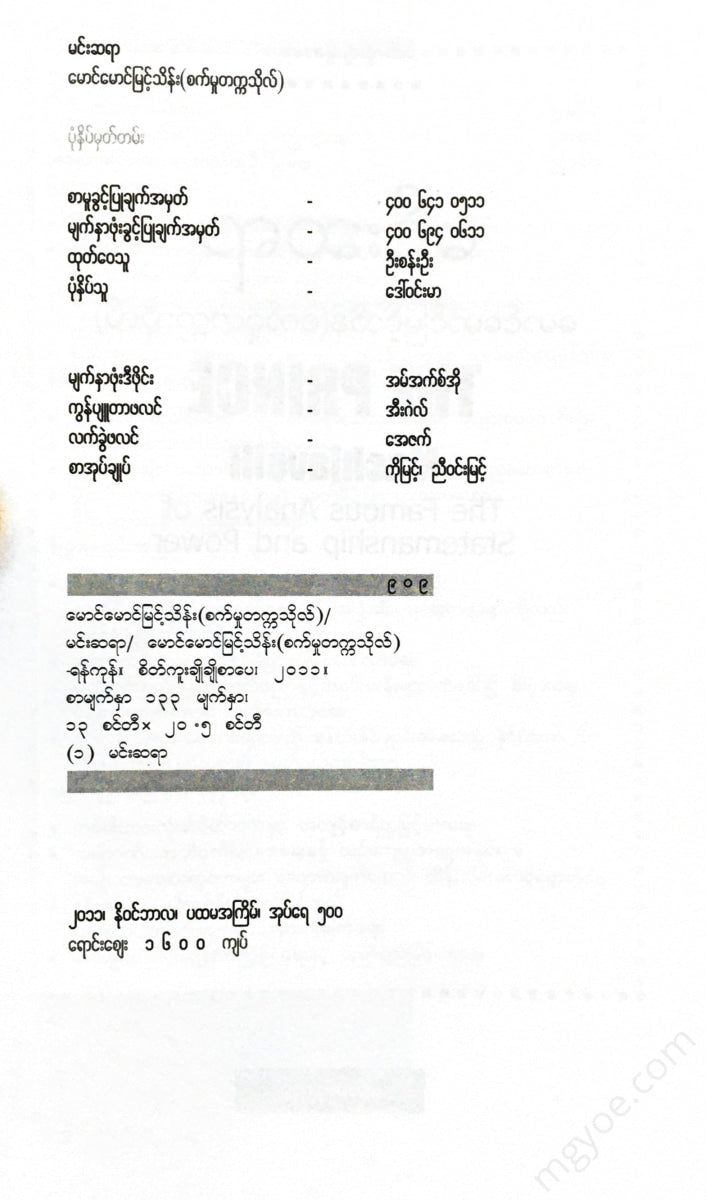စိတ်ကူးချိုချိုစာပေ
Maung Maung Myint Thein (University of Technology) - Min Sayar
Maung Maung Myint Thein (University of Technology) - Min Sayar
Couldn't load pickup availability
Niccolo Machiavelli
A glimpse into the story
Niccolo Machiavelli was born in Florence on May 3, 1469. His father was a magistrate. After an education that included a thorough study of Latin and Italian classics, he entered the civil service as a clerk in 1494. This was a period of decline for the Medici family, which had ruled the city-state of Florence for about 60 years.
When the Republic of Florence was founded in 1498, Machiavelli became prominent as secretary of the Council of Ten, which was responsible for the country's diplomatic and military affairs. From 1499 to 1512, in addition to his ministerial duties, he made numerous diplomatic trips to the Italian peninsula and to the French, Papal, and German thrones. His travels in Italy as a diplomat allowed him to become familiar with the political systems of several Italian kings. In late 1502 and 1503, Machiavelli became acquainted with the effective statecraft of Cesare Borgia, a religious figure. During this period, Cesare Borgia expanded his domains in central Italy, using a combination of courage, cunning, self-reliance, decisiveness, and sometimes cruelty.
From 1503 to 1506, Machiavelli was tasked with reorganizing the military defenses of the Republic of Florence. Although mercenary troops were common during this period, Machiavelli was so confident in the loyalty of these mercenaries that he wanted to recruit citizens of the Republic as soldiers. This preference for recruiting only native soldiers was inspired by Livy's writings on the ancient Roman militia.
In August 1512, due to the conflict between Spain and France in the Italian peninsula, the Medici regained the Florentine throne and the Republic was dissolved. Machiavelli, who had been a key figure in the republic and was considered an anti-Medici, was dismissed in November. In the spring of 1513, he was tried and executed for his involvement in a coup d'état. After his release from prison, he returned to his estate at San Casiano, near Florence. While there, he wrote his most important literary work. He tried to curry favor with the Medici, but was unable to regain his government position. He died in Florence on 21 June 1527.
First word
Machiavelli 's most famous work, The Prince , was written in 1513, but was not published until after his death.
It was only published in print (once in 1532, and once in 1640, translated into English).
The Prince described the cunning, cunning, and deceitful methods used by princes to gain and maintain political power. The book was immediately criticized and was soon condemned by Pope Clement VIII.
The points made in the book are based on Machiavelli's belief that a dictator is free from the constraints of conventional moral codes. Machiavelli believed that a ruler should only be concerned with the principles that are essential to gaining power and achieving political success.
In Machiavelli's time, the Italian peninsula was a hotbed of political conflict. The political conflict involved the city-states of Florence, Milan, Venice, and Naples, as well as the Holy Roman Empire, France, Spain, and the Roman Empire. Each city-state sought to protect itself by pitting itself against the other great powers. This led to a great deal of political intrigue, oppression, and violence.
The Prince was written on these grounds, and in its final chapter, Machiavelli concluded with a plea for Italian unity and an end to foreign interference.
In 1810, a letter written by Machiavelli was discovered. In it, he wrote that he had compiled The | Prince for the Medici Family, the rulers of the city-state of Florence. He summarized the importance of a strong, democratic government, even if it meant absolute monarchy, in order to free Italy from the influence of foreign governments.

